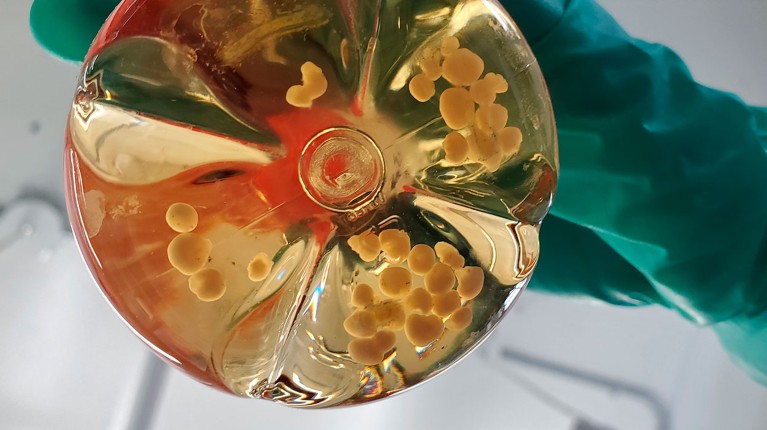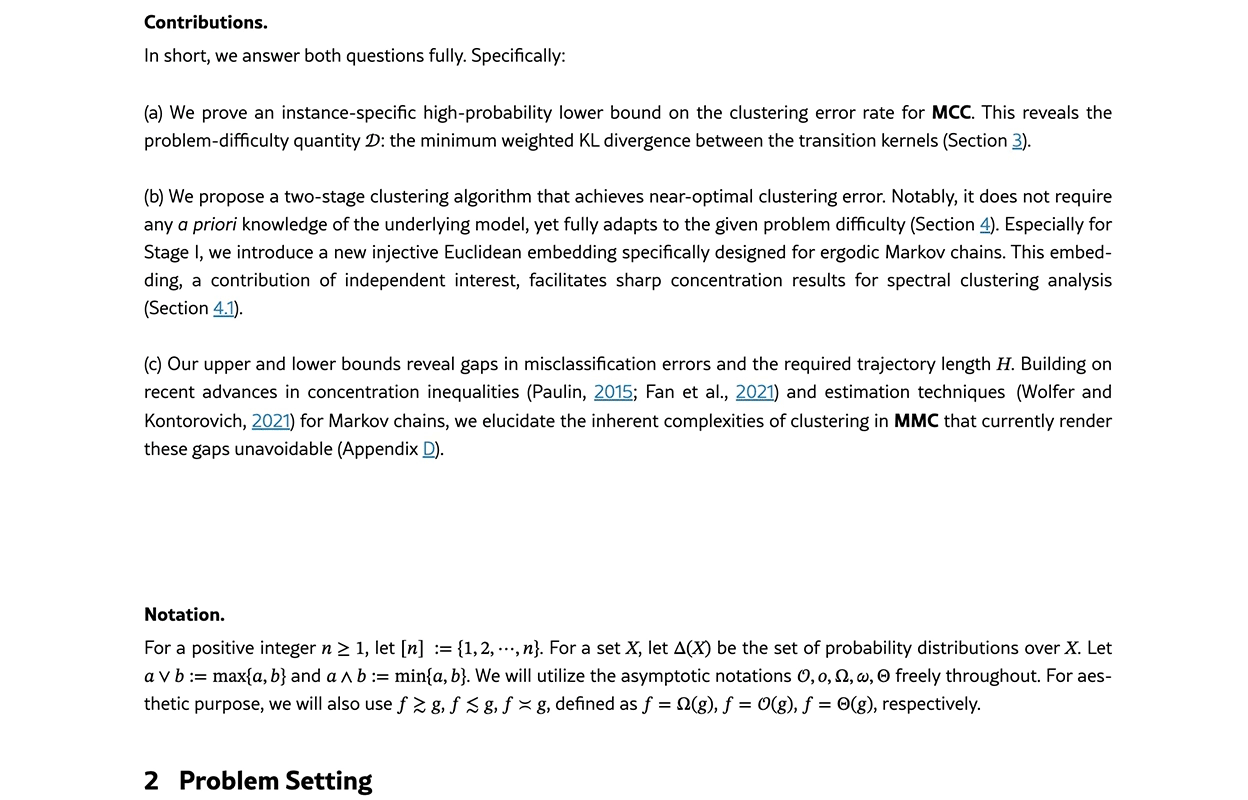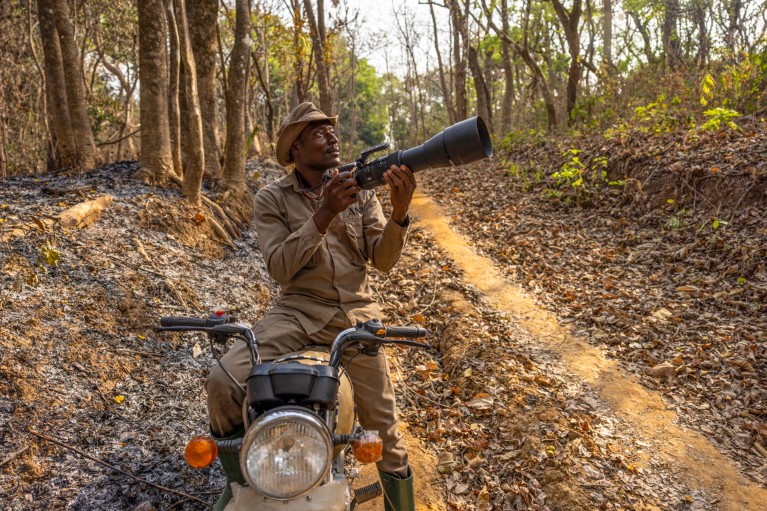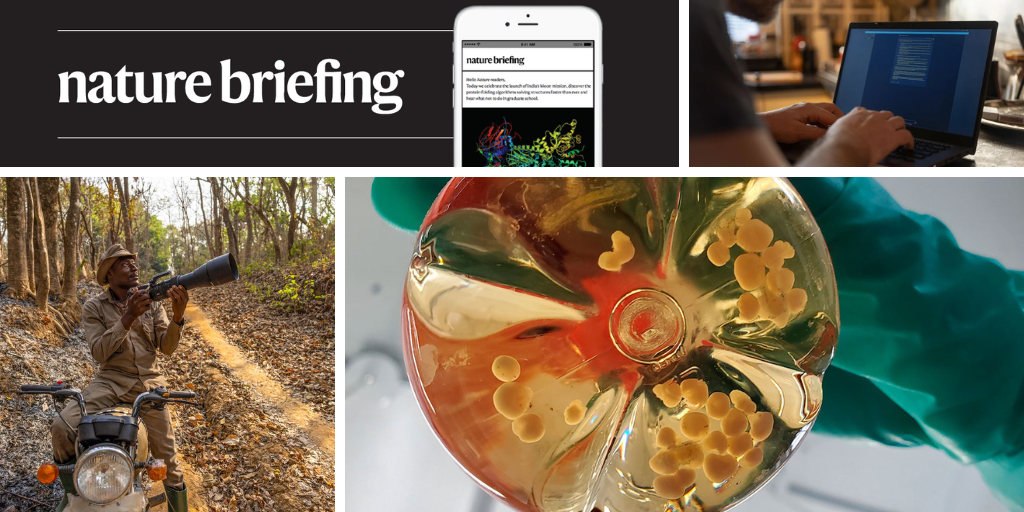You have full access to this article via your institution.
Hello Nature readers, would you like to get this Briefing in your inbox free every day? Sign up here.

Human cerebral organoids inside a flask. Scientists have grown hearts, liver and lung organoids with blood vessels.Credit: National Institutes of Health/SPL
Researchers have made heart, gut, liver and lung organoids that can grow their own blood vessels. Most organoids lack the vessels necessary to transport blood, oxygen and nutrients, which has restricted their size, function and ability to mature. The research teams grew vascularized organoids by coaxing stem cells to form vessels as the rest of the tissue was growing, rather than trying to add blood vessels later as previous attempts have.
Reference: Science paper & Cell paper
Scientists have tracked a gravitational-wave signal to a surprising source: the most massive black hole merger ever detected. “Black holes this massive are forbidden through standard stellar evolution models,” says astrophysicist Mark Hannam. Not only that: the celestial objects were also spinning at speeds close to the limit allowed by Einstein’s theory of general relativity. “It presents a real challenge to our understanding of black hole formation,” says Hannam.
Reference: arXiv preprint (not peer reviewed)
Researchers have been sneaking secret messages into their papers in an effort to trick artificial intelligence (AI) tools into giving them a positive peer-review report. Nature has independently found 18 computer science preprint studies containing such hidden messages — in which text is specifically tailored to manipulate large language models (LLMs). Many publishers ban the use of AI in peer review, but there’s evidence that some researchers do use LLMs to evaluate manuscripts or help draft review reports. This creates a vulnerability that others now seem to be trying to exploit, says forensic metascientist James Heathers.

The first version of this preprint contains white text that can be seen when highlighted.Credit: J. Lee et al./arXiv (CC BY 4.0)
Features & opinion
Many of us know our blood types as A, B, AB or O, but there are 47 officially recognized blood-group systems — or at least there were. Now there are 48, write transfusion-medicine researchers Martin Olsson and Jill Storry. A woman in Guadeloupe has blood that has been characterized as ‘Gwada-negative’; and because she’s the only person known to have it, she can’t receive a blood transfusion from anyone. The new category, like the other 47, reflects differences in the proteins and other molecules coating the red blood cells.
Ten years ago, New Horizons became the first, and only, spacecraft to take a close look at Pluto. “Since the flyby, we have basically rewritten the textbooks,” says planetary scientist Kelsi Singer. Among other discoveries, the mission revealed that the dwarf planet is graced with a remarkable heart-shaped feature partially filled with a sea of mysterious polygons. New Horizons is still going strong, gathering data on the outer Solar System — but the mission is threatened by drastic cuts to NASA proposed by the administration of US President Donald Trump.
See more: Pluto’s mysterious polygons explained (Nature | 5 min video, from 2021)
Where I work

Emmanuel Barde Elisha is a research coordinator with the Africa Nature Investors Foundation in Gashaka-Gumti National Park, Nigeria.Credit: Bruno D’Amicis
Emmanuel Barde Elisha is a research coordinator with the Africa Nature Investors Foundation in Gashaka-Gumti National Park, Nigeria. “My job is to coordinate the foundation’s research activities in the 6,400-square-kilometre park, which is Nigeria’s largest protected area,” he says. The park houses many vulnerable species, including the Nigeria–Cameroon chimpanzee (Pan troglodytes ellioti). “I’m always excited when I see chimps,” he says. “Poaching made them wary of humans, but now I think they are starting to understand that we can protect them, too.” (Nature | 3 min read)
On Friday, Leif Penguinson was taking a tour of Postojna Cave, Slovenia. Did you find the penguin? When you’re ready, here’s the answer.
Thanks for reading,
Flora Graham, senior editor, Nature Briefing
With contributions by Jacob Smith
• Nature Briefing: Careers — insights, advice and award-winning journalism to help you optimize your working life
• Nature Briefing: Microbiology — the most abundant living entities on our planet — microorganisms — and the role they play in health, the environment and food systems
• Nature Briefing: Anthropocene — climate change, biodiversity, sustainability and geoengineering
• Nature Briefing: AI & Robotics — 100% written by humans, of course
• Nature Briefing: Cancer — a weekly newsletter written with cancer researchers in mind
• Nature Briefing: Translational Research — covers biotechnology, drug discovery and pharma


